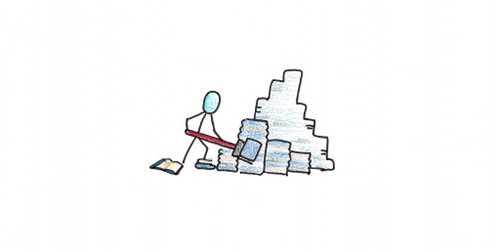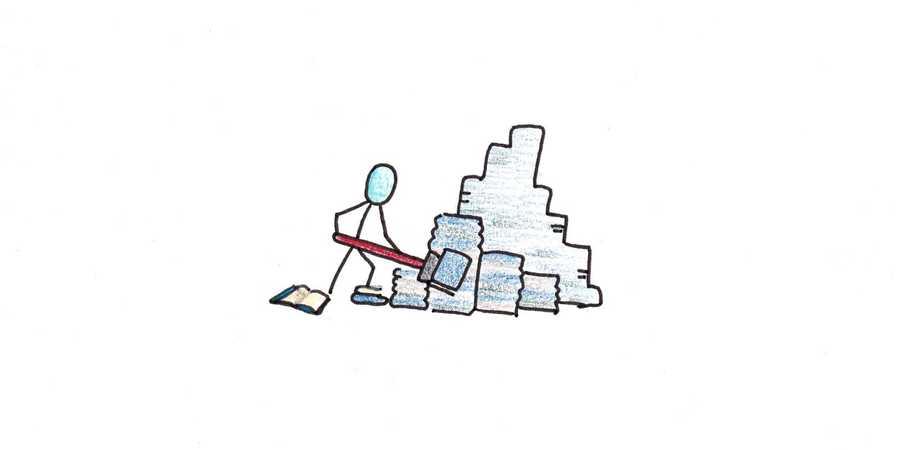How Much Do You Need to Know Before Getting Started? - Scott H Young
Curated from: scotthyoung.com
Ideas, facts & insights covering these topics:
5 ideas
·1.29K reads
24
Explore the World's Best Ideas
Join today and uncover 100+ curated journeys from 50+ topics. Unlock access to our mobile app with extensive features.
Pre-Knowledge
Say you need to learn a complicated skill: physics, French or computer programming. How much time should you spend building your background knowledge before you start practicing the actual skill?
Consider machine learning. One way to learn this field would be to master first the underlying math. Then, when you encountered the programming commands for certain mathematical functions, you’d know what they are doing behind the scenes.
37
402 reads
The Prerequisites to Learning a Skill: Cognitive Skill Acquisition
At a basic level, we can contrast two ways of learning. One way is to memorize, by rote, the answer to every possible question in a domain. The other way is to learn a process for generating solutions in the domain.
Children seem to do exactly this when learning arithmetic. They begin with a procedure, like counting. As they gain experience, they memorize more and more of the exact answers. Eventually, they are able to solve most arithmetic problems through recall alone, and the procedure of counting fades away.
38
286 reads
Learning Math: Work Notes
- Eventually, many answers are memorized. This results in fast, reliable access and helps us perform complicated skills smoothly.
- The procedure of counting is more compact than an array of memorized facts. Thus the method is learned first, with fluently recalled answers coming only after much more experience.
- The counting procedure can act as a backup.
- The choice to use memorization or a procedure to find an answer depends on the effort needed to perform the procedure, the reliability of the procedure, and incentives surrounding accuracy.
38
229 reads
Digging Deeper
When performing skills, we use a variety of methods, from following a procedure to retrieving an answer from memory. With increased practice, the memory component becomes dominant for routine situations. Even when we can’t get the exact solution from memory, we may find parts of the answer which we can use to solve the problem faster.
Digging deeper has two benefits:
- It can provide a strategy to obtain the correct answer when memory fails.
- It can assist in non-routine situations where no answer is known.
37
206 reads
Digging Deep Vs Diving In
- Methods that directly assist with learning a domain are necessary prerequisites. Even if a brute-force approach might work, good methods are more reliable than trial-and-error.
- Routine performance is largely handled by drawing on direct experience—not working from first principles.
- If the principles don’t actually lay out the actions needed for routine situations, then they are mainly helpful in non-routine cases.
- These principles will probably only be relevant as your experience within a field grows.
39
170 reads
IDEAS CURATED BY
Whenever I have a problem I just sing, then I realize my voice is worse than my problem
Christopher C.'s ideas are part of this journey:
Learn more about problemsolving with this collection
How to handle and learn from mistakes
The benefits of psychological safety in a workplace
The importance of empathy and active listening
Related collections
Similar ideas
8 ideas
7 ideas
What is Understanding? | Scott H Young
scotthyoung.com
4 ideas
The Science Behind Building General Skills | Scott H Young
scotthyoung.com
Read & Learn
20x Faster
without
deepstash
with
deepstash
with
deepstash
Personalized microlearning
—
100+ Learning Journeys
—
Access to 200,000+ ideas
—
Access to the mobile app
—
Unlimited idea saving
—
—
Unlimited history
—
—
Unlimited listening to ideas
—
—
Downloading & offline access
—
—
Supercharge your mind with one idea per day
Enter your email and spend 1 minute every day to learn something new.
I agree to receive email updates

